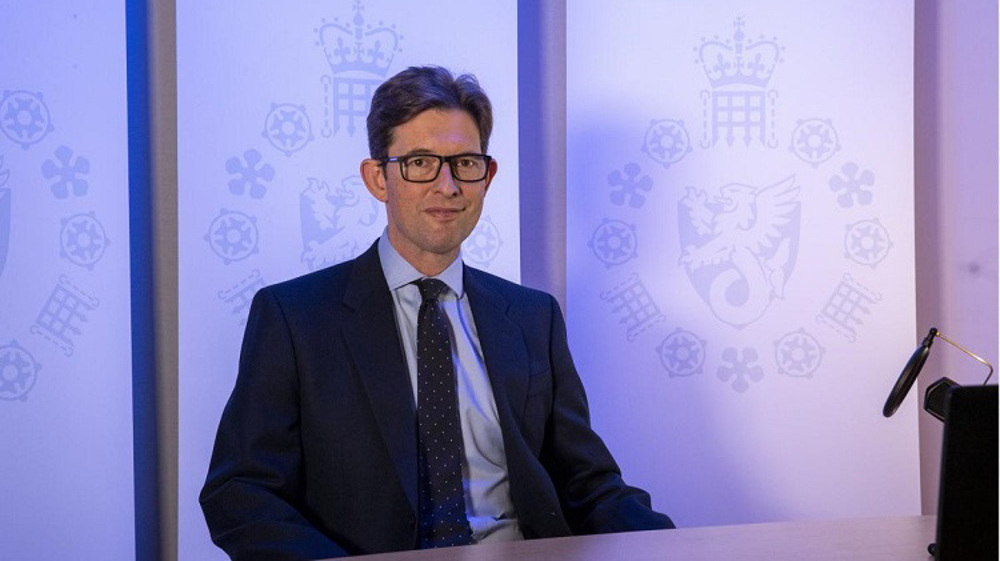MI5 boss: UK faces a ‘nasty mix’ of terror and espionage threats
In his first public address since becoming the Director General of the Security Service (MI5), Ken McCallum has talked about a growing threat from violence by terror groups and espionage by foreign intelligence services.
McCallum, who replaced Andrew Parker as Director General of MI5 in April, complained that his organization is “battling competing priorities”.
“The national security challenges presented by Russian, Chinese, Iranian and other actors are growing in severity and in complexity”, McCallum claimed.
The new MI5 boss added that “we [the UK] face a nasty mix – terrorism isn’t going away, and state-backed hostile activity is on the rise”.
On the issue of state-based threats, McCallum said that “if the question is which countries’ intelligence services cause the most aggravation to the UK in October 2020 the answer is Russia”.
But he added: “If on the other hand the question is which state will be shaping our world across the next decade, presenting big opportunities and big challenges for the UK the answer is China”.
The Security Service boss then used a weather analogy to set out the level of threat it perceives from both hostile services.
“You might think in terms of the Russian intelligence services providing bursts of bad weather, while China is changing the climate”, McCallum quipped.
On the issue of terrorism, the new MI5 boss provided new details about the growing threat from domestic right wing extremism.
McCallum said that of the 27 disrupted terrorist attacks since 2017, eight could be attributed to domestic far right extremists.
But the Director General was careful to add that the threat from domestic far right extremists is not “on the same scale” as what he called “Islamist extremist terrorism”.
McCallum’s projection of strength and confidence sits at odds with the reality of MI5, which by some credible accounts is a divided and demoralized service.
MI5’s internal crisis prompted the Queen to break with tradition and pay her first ever publicized visit to the Security Service back in February.
In recent years MI5 has failed to detect and disrupt several terror attacks, most recently a stabbing at Reading in June which claimed three lives.
Prior to that, in February 2020 a convicted terrorist (who was well known to MI5) stabbed and wounded two people in Streatham, south London.
But far more importantly – and in the context of state-based threats to the UK – MI5 was deeply demoralized by the March 2018 attack on the Russian double agent, Sergei Skripal, in Salisbury.
In addition, MI5 appears to be failing to contain domestic threats to the UK’s national cohesion and territorial integrity.
The rise of Scottish nationalism and the Security Service’s failure to arrest the momentum towards Scottish independence is a case in point.
Finally, MI5 is currently at odds with the leaders of the Home Office, notably Home Secretary Priti Patel.
As the Home office nominally controls MI5 - at least in constitutional if not operational terms – the poor relationship between MI5 bosses and the leaders of the Home Office can be construed as yet another indicator of the instability at the heart of the British Security Service.
Leader: Iran has no proxy forces in West Asia
US fighter aircraft shot down ‘in friendly fire’ amid aggression on Yemen
Yemeni FM: Israel’s sponsors accountable for ongoing aggression on Sana’a
Eight Palestinians killed as Israel attacks Gaza school, hospitals
VIDEO | Rome, Milan host new protests in solidarity with Palestinians
Dec. 21: ‘Axis of Resistance’ operations against Israeli occupation
Spain jurists demand ties with Israel ties be cut
VIDEO | Press TV's news headlines














 This makes it easy to access the Press TV website
This makes it easy to access the Press TV website